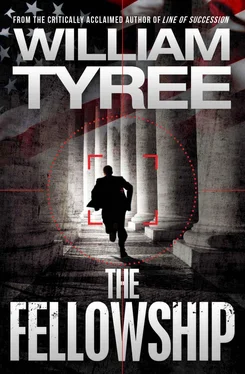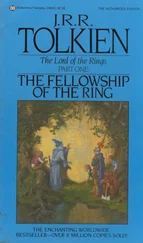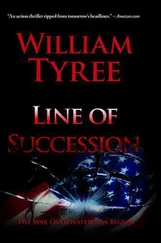William Tyree - The Fellowship
Здесь есть возможность читать онлайн «William Tyree - The Fellowship» весь текст электронной книги совершенно бесплатно (целиком полную версию без сокращений). В некоторых случаях можно слушать аудио, скачать через торрент в формате fb2 и присутствует краткое содержание. Год выпуска: 2013, Издательство: Massive, Жанр: Триллер, на английском языке. Описание произведения, (предисловие) а так же отзывы посетителей доступны на портале библиотеки ЛибКат.
- Название:The Fellowship
- Автор:
- Издательство:Massive
- Жанр:
- Год:2013
- ISBN:нет данных
- Рейтинг книги:5 / 5. Голосов: 1
-
Избранное:Добавить в избранное
- Отзывы:
-
Ваша оценка:
- 100
- 1
- 2
- 3
- 4
- 5
The Fellowship: краткое содержание, описание и аннотация
Предлагаем к чтению аннотацию, описание, краткое содержание или предисловие (зависит от того, что написал сам автор книги «The Fellowship»). Если вы не нашли необходимую информацию о книге — напишите в комментариях, мы постараемся отыскать её.
The Fellowship — читать онлайн бесплатно полную книгу (весь текст) целиком
Ниже представлен текст книги, разбитый по страницам. Система сохранения места последней прочитанной страницы, позволяет с удобством читать онлайн бесплатно книгу «The Fellowship», без необходимости каждый раз заново искать на чём Вы остановились. Поставьте закладку, и сможете в любой момент перейти на страницу, на которой закончили чтение.
Интервал:
Закладка:
The music in the other room stopped. Wolf heard the radio flicker on. The announcer’s voice was muffled, but there was urgency in his tone.
Wolf rose, exited the bedroom and went to the living room, where his mother was sitting in a chair near the radio. She covered her face with her hands as she wept. That could only mean one thing — there had been news about his brother’s outfit.
Wolf kissed her on the forehead and turned the volume on the radio back up and listened to the rest of the news bulletin. Although surrounded, the Sixth Army has vowed to fight to the last man, the announcer said. They would rather die than surrender to the atheist Bolsheviks.
Lang Residence
Suburban Munich
Christmas Day
The Lang country home sat on several acres of suburban Munich at the edge of the Perlacher Forest. Mrs. Lang — a tall, gregarious woman in a pretty green party blouse — met Sebastian Wolf and his mother, Gertrude, at the door.
Mrs. Lang had toted the party line well enough to maneuver her son into a position at the Reich School, and later, into the Ahnenerbe. But on this night, in the privacy of her own home, she wore makeup. She wore pants that had been imported from America. And she was smoking. Not exactly a candidate for the National Cross of Motherhood.
She showed them into the living room, where a square bench made of birch surrounded a magnificent fireplace. The extravagant size of the home was grounded by its rustic furnishings. In the far corner, someone played carols on a grand piano.
Mrs. Lang offered the Wolfs some cherry brandy from the bar. In addition to the Lang’s four children, several dinner guests were already on hand. Most were familiar family friends, although with the exception of the Langs, Sebastian had seen none of them since leaving for school. Looking dapper in a simple gray suit and white arm sling, he listened politely as the other guests fawned over how much he had grown in the past four years.
Heinz Lang was all smiles as he bounced downstairs with his dog at his side. The sight of his black SS uniform immediately quieted the room. The piano faltered, and then trickled to a halt. Although the boys’ recruitment into the Ahnenerbe was known to all, the presence of the uniform was jarring. The guest list consisted entirely of what Mrs. Lang called antisocial Nazis — those who had joined the party only to avoid suspicion.
Seeking to deflect the awkwardness, Mrs. Lang turned her attention to Wolf. “Sebastian dear. How is your shoulder?”
“On the mend. Even if Heinz did take me to a drunk French surgeon.”
The guests laughed, the piano resumed, and the room crackled back to life. When asked about his war wound, Wolf repeated the same story that he and Lang had agreed to on the train back to Munich. They had been conducting research in Paris, he told them. A French policeman had tripped and fired his gun. Merely a random accident. There was nothing for anyone to worry about.
In truth, Wolf felt less confident about his recuperation than he let on. It was true that he was regaining range of motion and his mother, an experienced nurse, had dressed the wound the night before, proclaiming it free of infection. But the sweats he had experienced in Paris still came and went. At times they left him dizzy. And when he slept, he was haunted by demons. He saw the faces carved in the Portal of the Last Judgment. He saw the symbols that Hoffman had written in his own blood. He had left Notre Dame, but the cathedral had not yet left him.
Mrs. Lang took Gertrude aside and, with a hand on her shoulder, chatted in a corner of the room. Wolf did not have to read lips to know what they spoke of. Everyone had heard news of Stalingrad. Gertrude had been up all night crying.
The smell of roasted goose wafted in from the dining room, and the guests did not wait to be invited to the table. Wolf was astonished when he saw not just one bird, but two, on identical silver platters. The sight of so much meat was shocking.
“You must have been saving your food stamps for months,” Gertrude said. Wolf knew otherwise. Mr. Lang, who was a high-ranking official in the Ministry of Education, had acquired the birds through a connection.
Mrs. Lang called out across the room. “Father Kruger! Come to the table!”
Had she said Kruger? Wolf had known a Father Kruger once. A Jesuit priest from his old parochial school. A formidable teacher who could recite countless texts on any number of subjects from memory.
The pianist maneuvered from the song’s bridge into several closing chords. He pushed the bench out from behind him and made his way to the table. The Father Kruger that Wolf had known had been barrel-chested with thick, powerful forearms that were impressive even under the long sleeves of his black cassock.
This man was disturbingly thin. He wore a gray civilian sweater with a white oxford shirt and a black tie. He had thinning gray hair that was long and slicked back behind his ears. He avoided eye contact with the other guests.
Yet it was him. Remarkably transformed in just three years.
“Father Kruger,” Wolf said. “It’s Sebastian Wolf. Do you remember me?”
The priest sat down and placed his napkin in his lap before looking up. “Yes,” he answered. “You were quite bright, as I remember. And quite ambitious, evidently.”
Mrs. Lang tapped her wine glass. Conversation among the 12 guests stopped. “At the risk of being cruel, I should like to delay our meal for just a moment longer for a Christmas prayer. Father Kruger, would you give us the honor?”
The priest placed both hands flat on the table. “Although I trust we are all friends here,” he said, his eyes glancing across Lang’s uniform, “I have signed an oath that I will refrain from engaging in any type of religious ritual. I therefore must, with much regret, pass.”
The table was quiet for several awkward moments. At last Gertrude raised her glass. “Well then, if we can’t pray, then I will propose a toast.”
At 36, Gertrude’s good looks defied all that she had been through in the past four years: the death of her husband, the job she had taken at Lebensborn , and four months without letters from her oldest son. Her chin was still angular, her hips were reasonably trim, and most of her wavy hair was still golden.
“First,” she said, “A toast to the Langs for bringing a bit of cheer into our lives today.” The guests sounded murmurs of approval. “Second, I’m grateful for the sons that could be with us today, and I pray for those who are yet far afield that the Lord may watch over them and deliver them home safely. Finally, I express my gratitude for returning Father Kruger to us after so many years. This alone should give us all hope.”
Arms crisscrossed as wine glasses clinked and lively chatter commenced. Plates were passed as Mrs. Lang carved the goose.
Wolf leaned into his mother’s ear and whispered. “What happened to him?”
Gertrude smiled for show, as if she were about to whisper something amusing. She shielded her lips with her wine glass, and spoke. “The Dachau camp.”
Wolf had a vague notion of the prison camp located in the suburb of Dachau, a 30-minute train ride from central Munich. It was rumored to be the principal destination for political prisoners, including a large number of Christian and Jewish clergy that refused to toe the party line. Lately he had heard rumors that captured Russian prisoners were taken there to make munitions.
As curious Wolf was in the crime Father Kruger had committed, and in the punishment he had received, another agenda was rapidly forming in his mind. He resolved to find out where Father Kruger spent his days now. He had important questions that he wondered if his old schoolmaster could answer.
Читать дальшеИнтервал:
Закладка:
Похожие книги на «The Fellowship»
Представляем Вашему вниманию похожие книги на «The Fellowship» списком для выбора. Мы отобрали схожую по названию и смыслу литературу в надежде предоставить читателям больше вариантов отыскать новые, интересные, ещё непрочитанные произведения.
Обсуждение, отзывы о книге «The Fellowship» и просто собственные мнения читателей. Оставьте ваши комментарии, напишите, что Вы думаете о произведении, его смысле или главных героях. Укажите что конкретно понравилось, а что нет, и почему Вы так считаете.











